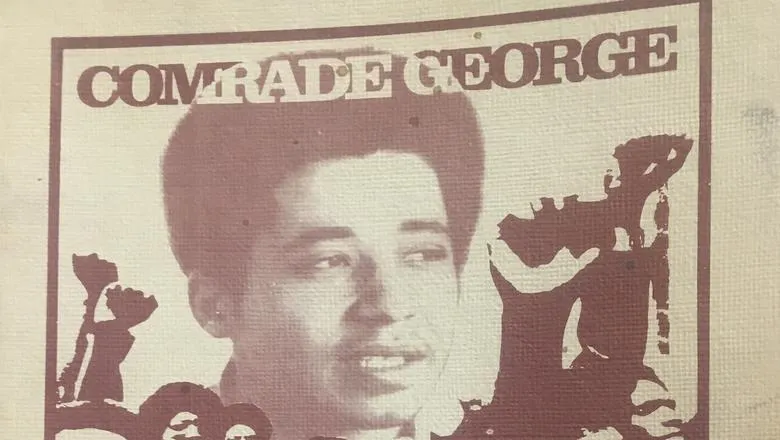31 October 2019
Important documents relating to the Black Power movement donated to King's
Dr Mark Shiel, Head of the Department of Film Studies
Dr Mark Shiel writes about the recently brokered private donation of materials to the King’s Archive and Special Collections which belonged to American filmmakers Barbara and David Stone.

In 2018, as part of my research into political cinema of the 1960s, I brokered a generous donation to King's Archives and Special Collections of private papers, business correspondence, film production records, magazines, journals and books, which belonged to the family of the London-based American filmmakers David Stone (1932-2011) and Barbara Stone (1934-2018). The donation was kindly made to King's by their children Dylan and Alexandra, and it represents a significant and exciting addition to the university's collections. David and Barbara were closely involved with the progressive and avant-garde New American Cinema movement and the Newsreel underground political filmmaking collective of the '60s, especially in New York City.'
Their collection contains extensive documentation, not only of American independent filmmaking in that era, but also American social, political, and cultural history, particularly Black Power and Third World liberation movements. Like many of their peers, the Stones were strongly opposed to the Vietnam War and to other US and European military interventions in what was then becoming an increasingly post-colonial world. They also sympathised and cooperated with the Black Panther Party and similar organisations in the US and elsewhere, working on films which advanced their causes and assisted their membership drives and fundraising.
The Stones' collection contains extensive production records, correspondence, treatments and scripts of some of the most important political films on such themes. These films include Columbia Revolt (Newsreel, 1968), Ice (Robert Kramer, 1970), and Companeras y companeros (Barbara Stone, 1970) – the first a rousingly sympathetic portrayal of the occupation of Columbia University in April 1968 by white and black student radicals; the second a fictitious but chilling thriller about far-left guerilla warfare in the American inner-city; and the third an admiring documentary about young people's contributions to the Cuban Revolution, shot on location in Cuba. Also, well-represented in the collection are periodicals and pamphlets of various civil rights and radical leftist organisations of the day – invaluable, and rare, records of an era in which cheap mass-produced printing on paper was still central to political activism.
Hence, the collection contains Black Panther party newspapers and manifestos, magazines produced by the Weather Underground organisation (Sing a Battle Song, Prairie Fire, Osawatome), and the Red Prison Movement's Comrade George: An Investigation into the Official Story of his Assassination, His Work for the People and their Response to his Death. Few archival collections anywhere have such a rich and evocative documentation of that passionate and turbulent era, very different from our own, and yet with remarkable parallels both politically and in its use of media.
In 2018, the Department of Film Studies at King's, together with the departments of French, SPLAS, Digital Humanities, Geography, and the School of Education co-organised a series of talks and film screenings relating to the global protest movements of the 1960s, including some of the work of the Stones. The series was called 1968 and its legacies, and in 2020-21 we will be planning further events and an exhibition of a representative sample of materials from the Stone collection.
If you're interested in learning more about this project, please email mark.shiel@kcl.ac.uk or check the Department of Film Studies website for updates.
Please note that the Stones' collection is also strong in relation to other subjects, including the aforementioned New American Cinema of the early to mid 1960s and key films produced by David Stone, such as Hallelujah the Hills (Adolfas Mekas, 1963) and The Brig (Jonas Mekas, 1964); and cinemagoing and the film industry in London in the 1970s and '80s, where the Stones owned and ran the Gate cinema in Notting Hill and others, as well as their own notable distribution company Cinegate.
Dr Mark Shiel is Reader in Film Studies and Head of the Department at King's College London. His research interests include cinema and the city, cinema and radical politics, critical theory and Italian neorealism. For more details, read more about him at his online academic profile.
(Aug 2022 - The Department of Spanish, Portuguese & Latin American Studies (SPLASH) is now The Department of Languages, Literatures and Cultures).


